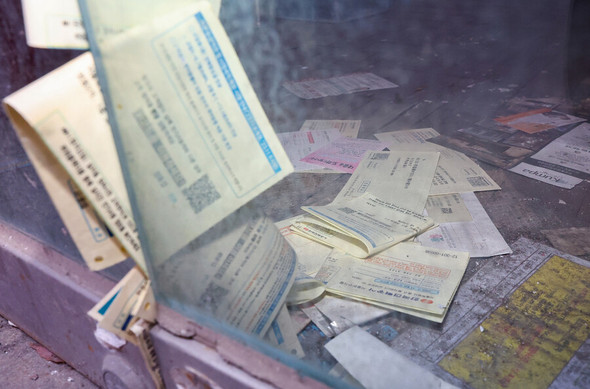Influenced by prolonged high interest rates and sluggish domestic demand
It has been found that the number of people who reported going out of business last year reached nearly 1 million. The increase from the previous year reached a record high of about 120,000. Prolonged high interest rates and sluggish domestic demand are cited as the background to this. It is pointed out that measures to encourage self-employed people who have gone out of business to re-enter the labor market are urgently needed.
According to the National Tax Statistics Annual Report on the 15th, 986,487 businesses reported going out of business last year. The number of businesses that went out of business annually decreased from 922,159 in 2019 to 895,379 in 2020, and then remained in the 800,000 range until 2022. However, last year it suddenly increased to nearly 1 million. The proportion of businesses that closed down among the total number of businesses also gradually declined from 11.5% in 2019, 10.3% in 2020, 9.6% in 2021, and 9.0% in 2022, but rose to 9.9% last year.
The industries with the most business closure notifications were directly related to domestic demand. The number of retail businesses that closed down last year was 276,564, an increase of 29.0% from the previous year. This is more than double the overall increase in the number of self-employed businesses that closed down (13.7%). Next, the increase in the number of businesses that closed down in the service industry (218,002 people) was large at 17.7%, and the restaurant industry (158,328 people) and construction industry (48,631 people) also had higher growth rates than average, with increases of 16.3% and 15.9%, respectively. “The increase in the number of businesses that have closed is likely due to an increase in the number of self-employed people who are finding it difficult to withstand sluggish domestic demand and high interest rates,” said Lee Byung-hee, a senior researcher at the Korea Labor Institute.
The number of businesses that have closed is likely to increase again this year. According to an analysis of microdata from the Statistics Korea economic activity population survey, the number of unemployed people who worked as self-employed people in the past year averaged 26,000 per month in the first half of this year. This is a significant increase of 23.1% compared to the first half of last year (21,000). The number of people who worked as self-employed people in the past year among the economically inactive population in the first half of this year also averaged 268,000 per month, an increase of 6.0% compared to the same period last year. The economically inactive population refers to unemployed people aged 15 or older who are not seeking work. The increase in the economically inactive population of former self-employed people means that more people are not re-employed after closing their own businesses.
In response to this, some are calling for the strengthening of a “safety net” to support self-employed people who have gone out of business, including reemployment and re-startup support, as well as re-entering the labor market. They are calling for proactive labor market policies to draw them into the labor market, going beyond the government’s current measures of debt adjustment support for small business owners, support for fixed costs such as delivery fees, and extension of loan maturities.
“In Korea, the proportion of self-employed people among the total employed is high (23.5% in 2022), and the problem is that there are particularly many livelihood-based self-employed people who have been pushed out of the labor market,” said Woo Seok-jin, professor of economics at Myongji University. “Measures are needed to increase quality jobs in the labor market so that they can re-enter the labor market.” Senior research committee member Lee Byung-hee said, “In the medium to long term, we should consider establishing a system for a safety net for self-employed people after they lose their jobs. We first need to discuss expanding or making mandatory employment insurance coverage for self-employed people, as is the case in some countries such as Spain and Ireland.”
Reporter Choi Ha-yang
*Related thread
“If it’s the same price, I’ll go to Japan” Koreans, accommodations on Jeju Island are closing down one after another – Korean media [7/8] [Minister of the Right, Daichannosuke★]

It’s a franchise convenience store.
I hope that neighbors will help each other out when they are in trouble.
That’s right.
If neighbors help each other, there’s no need to cross the ocean.
You have a land neighbor to the north, right?
>>6
Maybe they’ll deport all Koreans living in Japan?
What’s your annual income?
And not just money, let’s also give Park Lee Choi Jeong (Pakrisaitei) as well.
Take it all.
Don’t let them spread abroad, it’s a nuisance.
if there are 450,000 Koreans in Japan and they eat 3 chickens a day for a year,
that’s 450,000*3*100*365
49,275 million yen
Korea’s household debt is 215 trillion yen
215 trillion/49,275 million ≒ 4363
4363 years until debt repayment, live long, Koreans in Japan lol



Comments